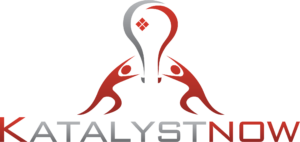Photo by Yannick Menard on Unsplash
Yes, I said squirrels on purpose. I even wrote another article about it on LinkedIn for learners. In a limited attention economy, learners of all kinds are distracted by:
- Screens, alerts, exponentially more media and information sources
- A seismic shift to remote work, which combines work and home in increasingly challenging ways
- Some rather frightening global stressors
I would argue that those of us delivering instruction are no less distracted. I’m going to get to the point with the TLDR (Too Long Didn’t Read) tenets for delivering knowledge to squirrels who have very limited attention and time:
- Be a coach and an inspiration (tell them and help them to focus on the best acorns)
- Be a strategist (help them plan the hunt and collection of the best acorns)
- Be a servant (find the resources, make the notes, curate the info)
- Be a facilitator (Okay, this doesn’t apply to squirrels, but…)
Most of you reading this probably feel like the bullets above go without saying, but I’m going to put one underlying “why” out there, that might make you mull a bit more:
- The differentiator between good and bad teaching (or training, or educating) is NO LONGER expertise
Whether we’re talking 3rd grade math, or rocket science, what made teachers and trainers unique used to be the combination of expertise on certain information and the ability to relate it to non-experts, with the emphasis in most cases, on the former. However, information has become democratized, chunked, covered and spread across a landscape of media, like acorns in the fall. They are all over the place! You can’t take a step without crunching them!
So, where the weight used to be on the information part for most teachers and trainers, these days, it needs to be placed on the latter bits: How do I help my learners, find, retain, cull, discard, and use the best bits of information to convert to knowledge in an overwhelming landscape? And, whether it’s a multi-day session or a brief workshop, our participants are no longer hanging on our every word. Instead, they are desperately juggling thousands of other acorns and trying to sort, sift and gather only the best, remember where the best are, and use them quickly.
Based on that, let’s take a look at some of the skills with a new light:
- Be a coach and an inspiration (tell them and help them to focus on the best acorns)
Learning is hard. Remember and respect that. Remember the other things pulling at your participants. Remember to constantly inspire by showing the value of the thing they are learning. One of my mentors used to remind me to “make it insanely relevant” (thank you, Chris Schroll). It was handy with university students, but it’s even more handy with employees ranging from new to C-Level being asked to be ever more productive with their time. Inspire your participants by constantly showing them the relevance and value of each thing you are teaching.
Good sports coaches do more than inspire. They may not always be the epitome of athletic prowess, but they know the tricks, drills, and the ways to become the best. In short, they steer and guide. Consider this for teaching. What drills, activities (or labs and exercises) are you doing to get them to the level they are seeking? And (back to inspiring), are you explaining why or how this will help them achieve what they need as quickly and efficiently as possible? Are you making it insanely relevant?
- Be a strategist (help them plan the hunt and collection of the best acorns)
Instead of seeking my expertise and knowledge of any topic, these days I’m finding participants more interested in my insight into which items are most important, where to find them and how to sort them. Realizing that I am an expert in becoming expert is both a good skill to have and a great skill to teach, in any area or field. Strategically, I’m trying to help get them to the right information quicker, with fewer wrong turns or useless bits that slowed me down along the way.
I explained this in more detail here, but generally I teach now with the assumption that participants are always multitasking. Rather than try to badger or berate them into paying attention, I honor the possibility that they may have priorities that are more important than my ego. These days I tell them not only about breaks, but also when to expect lighter content where they can more readily divide attention. I give suggestions on what to prioritize in any session for attention and focus, and I expect they’ll ask for reminders or refreshers on things I’ve just covered. I try to remember and respect that their attention and focus is, er, squirrely (for very legitimate reasons), rather than fight it.
- Be a servant (find the resources, make the notes, curate the info)
I wrote several articles on this many years ago (here and here to start…), but I think it is critical. When teachers and trainers were the only source, participants had to both pay money and attention for a rare resource of information. But now, their attention is sometimes even more valuable than their dollars, and the information is all over the place – and for the most part, free. Therefore, it is up to the trainer/teacher to provide value for that attention, and that really means service.
What things can trainers/teachers do to help support learners and their divided attention? I tend to think in terms of popsheets, review notes, curated, prioritized lists of things to know and study. If you’ve got more to add, I’m all ears! Please reply in the comments below as I’d love to be more valuable to the people paying to participate in my sessions!
- Be a facilitator (Okay, this doesn’t apply to squirrels, but…)
Facilitation is a very different skill set than lecturing or teaching, and one I’ve written on before with greats like @benforrest, and others. I hope to write more about it in the future, but for now, I’ll try to hit just the high points of facilitation from my perspective:
- Good Facilitators manage the time and agenda. Like a good tour guide, they know where the important stuff is, they keep the participants on the track, and keep the participants focused on the really important stuff.
- Good Facilitators engage (and disengage) their participants at the right times and right places.
- Really Good Facilitators curate the dynamic and unique outputs from an event or session. They bring out the “golden acorns” that are unique to any and every session, putting them together in a short form to share with and help participants stay on track after the actual event (more on this I hope in upcoming articles)
So, I’m hoping you’ve gotten some things to squirrel away and think about and I’m hoping you’ll add your own thoughts in the comments. How do YOU see training and learning changing in our “squirrelly” environment? While I’m at it, I want to thank collaborators and contributors Victor Colon, Kacy McClean and Ben Forrest for their help and input along the way!
Originally published in Linked in on October 2021



